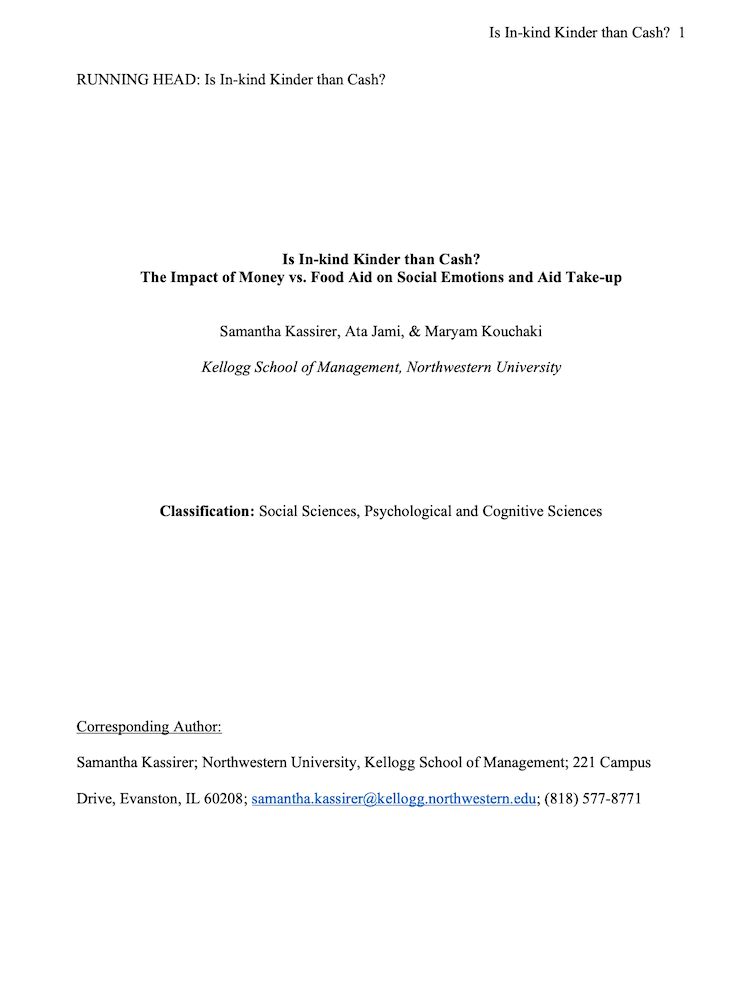Is In-kind Kinder than Cash? The Impact of Money vs. Food Aid on Social Emotions and Aid Take-up
Samantha Kassirer, Ata Jami, & Maryam Kouchaki (Northwestern University)
GPI Working Paper No. 12-2024, winner of the Fellowship 2024 Paper Prize and forthcoming in Proceedings of the National Academy of Sciences
There has been widespread endorsement from the academic and philanthropic communities on the new model of giving cash to those in need. Yet the recipient’s perspective has mostly been ignored. The present research explores how food-insecure individuals feel and respond when offered either monetary or food aid from a charity. Our results reveal that individuals are less likely to accept money than food aid from charity because receiving money feels relatively more shameful and relatively less socially positive. Since many experts endorse the relative effectiveness of monetary over in-kind aid, we hope this research encourages scholars and practitioners to examine strategies to remove the shame associated with the take-up of monetary aid from charity.
Other working papers
Philosophical considerations relevant to valuing continued human survival: Conceptual Analysis, Population Axiology, and Decision Theory – Andreas Mogensen (Global Priorities Institute, University of Oxford)
Many think that human extinction would be a catastrophic tragedy, and that we ought to do more to reduce extinction risk. There is less agreement on exactly why. If some catastrophe were to kill everyone, that would obviously be horrific. Still, many think the deaths of billions of people don’t exhaust what would be so terrible about extinction. After all, we can be confident that billions of people are going to die – many horribly and before their time – if humanity does not go extinct. …
Strong longtermism and the challenge from anti-aggregative moral views – Karri Heikkinen (University College London)
Greaves and MacAskill (2019) argue for strong longtermism, according to which, in a wide class of decision situations, the option that is ex ante best, and the one we ex ante ought to choose, is the option that makes the very long-run future go best. One important aspect of their argument is the claim that strong longtermism is compatible with a wide range of ethical assumptions, including plausible non-consequentialist views. In this essay, I challenge this claim…
Should longtermists recommend hastening extinction rather than delaying it? – Richard Pettigrew (University of Bristol)
Longtermism is the view that the most urgent global priorities, and those to which we should devote the largest portion of our current resources, are those that focus on ensuring a long future for humanity, and perhaps sentient or intelligent life more generally, and improving the quality of those lives in that long future. The central argument for this conclusion is that, given a fixed amount of are source that we are able to devote to global priorities, the longtermist’s favoured interventions have…

